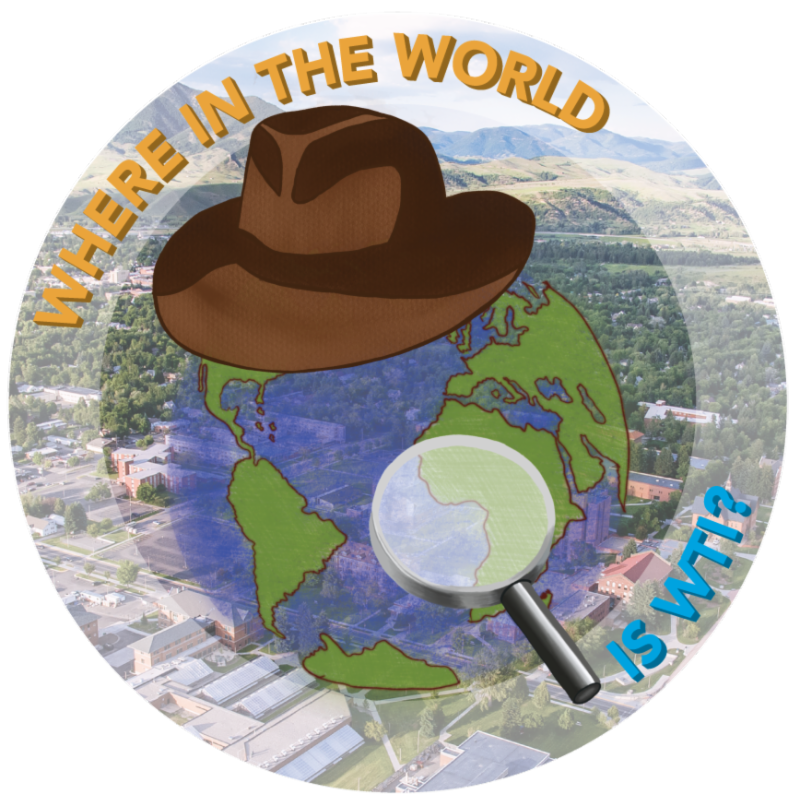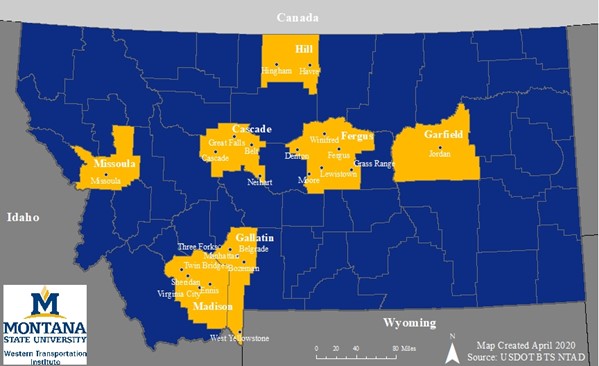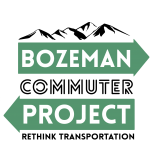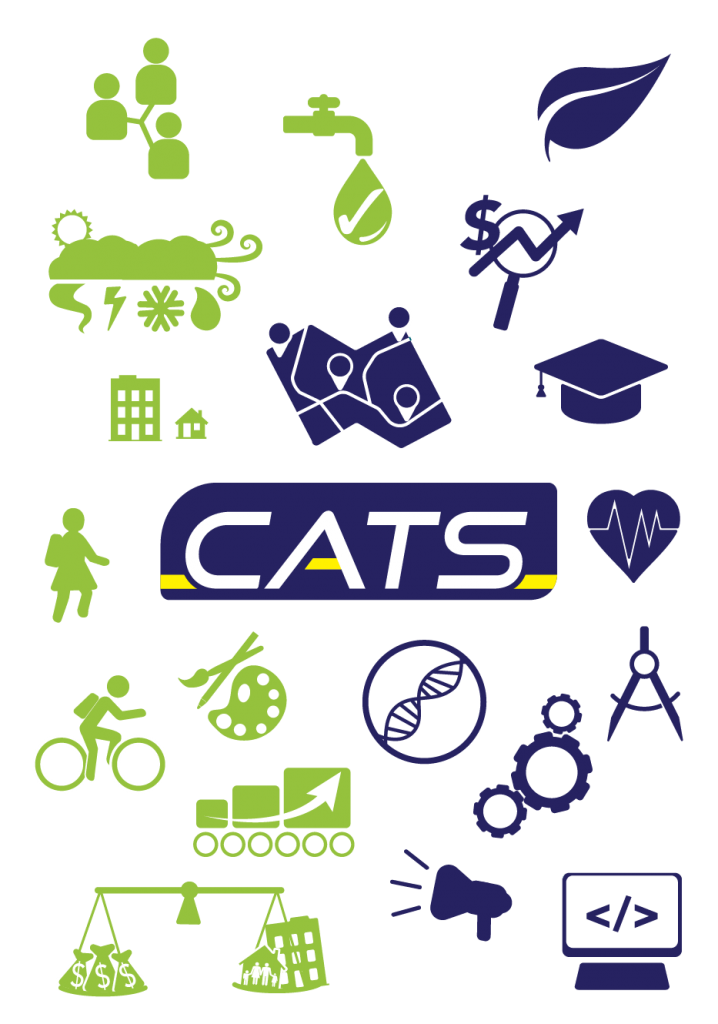INTERNATIONAL OUTREACH: Researchers Highlight Mobility Issues at UNESCO Conference

In 2015, WTI’s Small Urban and Rural Livability Center and West Region Transportation Workforce Center embarked on a collaborative project with partners from the Russian University of Transport (RUT), the Russian Federation’s largest university focused on transportation science and engineering. The project assessed and shared education and training resources to foster accessible transit services in […]
NEW REPORT: What is the Impact of a Local Gas Tax in Montana?

As one source of funding for transportation projects, the federal government and all states place a tax on fuel purchases. However, at the local and regional level, authorization and use of fuel taxes vary widely. In Montana, for example, state law has authorized a local option gas tax since 1979, but it has not been […]
Milestones in Service: Faculty and Staff Honored at Virtual Ceremony
On November 5, Montana State University hosted the 7th annual Milestones in Service celebration with a virtual awards ceremony to honor faculty and staff for their dedication and years of service to MSU. Awards are provided in 5-year increments based on cumulative years of service. This year’s ceremony recognized a number of faculty and staff […]
Student Research Opportunities: Five Positions Available with Bozeman Commute Rebrand Project

Summary: The Western Transportation Institute (WTI) is seeking five MSU students for part-time, paid positions to support the development and implementation of a project to rebrand a local, online commuter platform. Seeking students in marketing, graphic design, engineering, public health and sustainability. Apply by November 13th, 2020. Background Many people who work in Bozeman live […]
STUDENT NEWS: Students in CATS Program Spearhead Local Stormwater Survey

The City of Bozeman and Montana State University (MSU) students are partnering up to strengthen stormwater outreach efforts. Dr. Sarah Church, a professor in MSU’s Department of Earth Sciences, is leading a group of undergraduate students in a Geography course in the development of an online survey. This project is in collaboration with City staff […]
NEW PROJECT: MSU Researcher Receives Seed Grant for Commuter Project

Congratulations Matt Madsen! He received a seed grant from MSU’s Outreach and Engagement Council, which will support a collaboration between MSU students and community partners, including Gallatin County and the city of Bozeman, to develop a social marketing plan and rebranding for BozemanCommute.org. The website encourages people to replace drive-alone trips to work with trips […]
In the News: Humboldt County Transit Study Collecting Public Input
The Redheaded Blackbelt, a local online news outlet in Northern California, has published a feature story about a WTI-led transit study that is getting started in Humboldt County. “New Study will Identify Ways to Improve Public Transit in McKinleyville” discusses the project which is currently in a public outreach phase. The overall objectives are to […]
